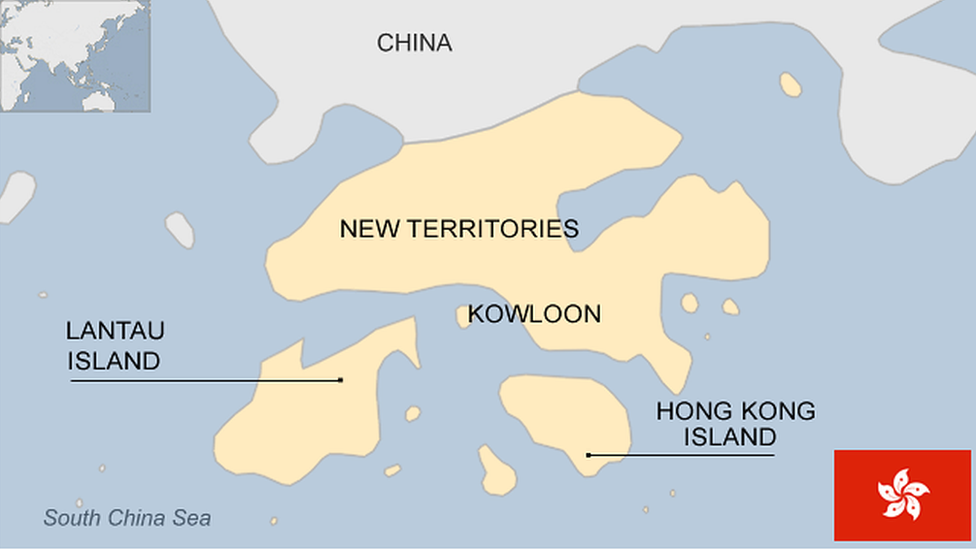Hong Kong's Mong Kok clashes: More than fishballs
- Published
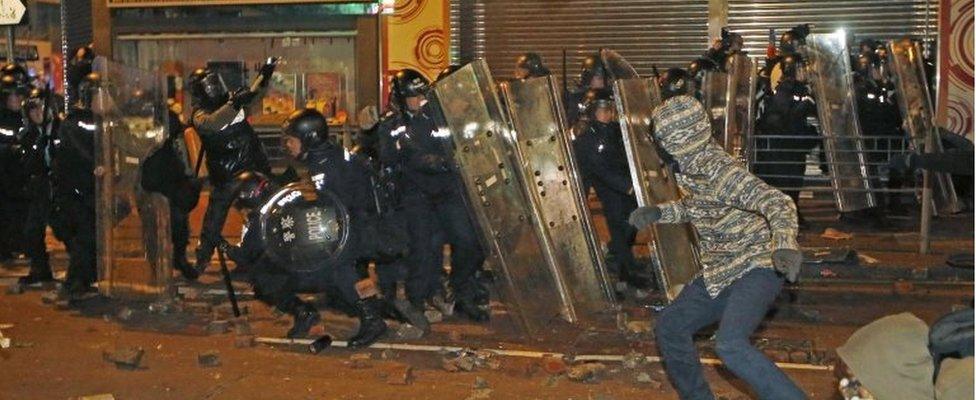
Hundreds of people clashed with police in Hong Kong's Mong Kok district on Monday night, as officials tried to shut down a night food market.
At least 54 people were arrested and dozens of people injured. At one point a police officer fired two gunshots in warning.
The unrest sparked the hashtag #fishballrevolution - but this was about more than snacks.
A New Year tradition
Each year for the Lunar New Year holiday, food hawkers set up old-fashioned stalls selling traditional local snacks to people out celebrating.

This year, the hawkers set up on the pavement along the junction of Shan Tung Road and Portland Street in Kowloon, north of the business district of Hong Kong island.
For many local people, a trip to the temporary night market to try some fishballs, grilled meat or other nostalgic favourites is a central part of the holiday.
Unlike year-round food stalls these are not licensed and do not pay rent, but generally the authorities turn a blind eye to this.
A crackdown
Last year, however, the authorities tried and failed to crack down on the unlicensed stalls.
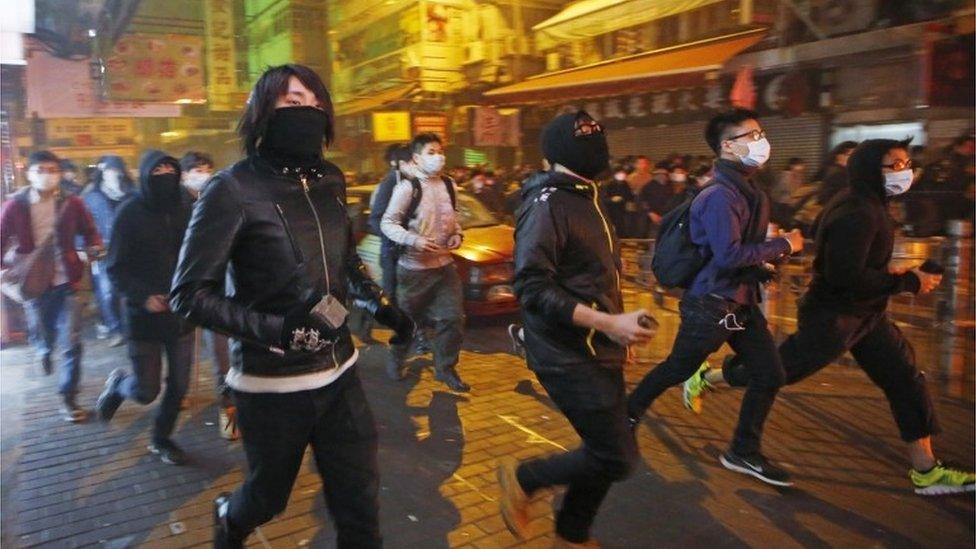
This year, they tried again. News of the plan reached local activists who were keen to oppose any moves they deem to be threatening local traditions.
On Monday, one group posted a video of the night market on its Facebook page, urging its supporters to come down and protect it.
Dozens of people had gathered to defend the vendors by the time the inspectors turned up on Monday night.
As news of the confrontation between police and protesters spread through social media, more people showed up
'Localist' backing
Among those supporting the vendors were so-called "localist" groups, small political groups and parties who favour greater autonomy for Hong Kong.
"Localist" groups have become more prominent in recent years, amid increased tensions with mainland China and frustration at what is seen as the slow pace of democratic reform.
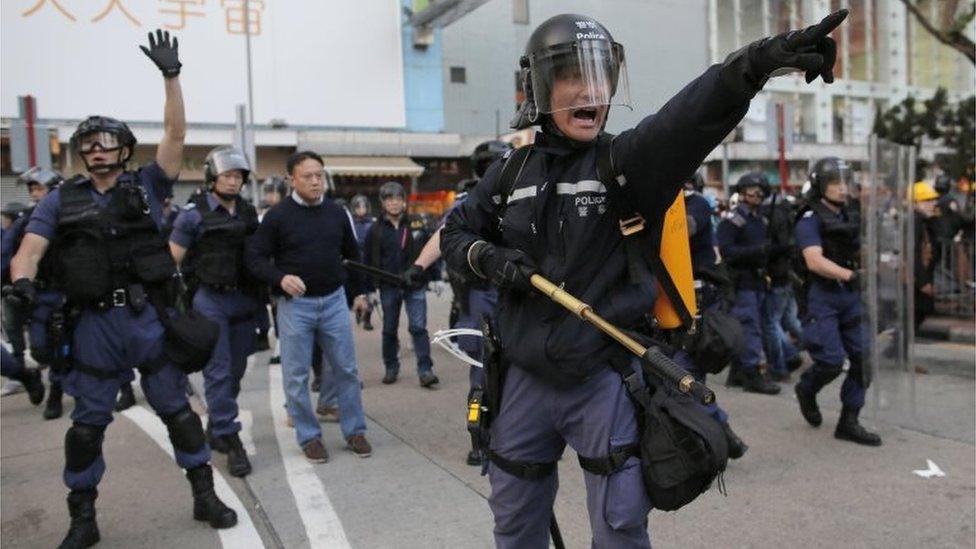
Many people were left frustrated by what is widely seen as the failure of the 2014 Umbrella Movement protests, when tens of thousands of people took to the streets to call for fully democratic elections in Hong Kong.
But "localist" groups are considered particularly radical, because they are strongly anti-Beijing and many have argued that Hong Kong should become an independent country.
During Monday night's unrest, there were reports of shouts of "Establish a Hong Kong country".
Activists have argued that local identity and culture is under threat from mainland China.
Issues like parallel trading - where mainlanders come to Hong Kong to buy up large amounts of goods - have fuelled the unease.
There have also been concerns that rights including freedom of assembly and free speech are under threat.
In recent months the disappearance of five Hong Kong residents who published books critical of the Chinese government have sparked protests. China eventually said the men had been detained over "illegal activity" - but there were fears that at least two of the men had been brought to mainland China against their will.
Hong Kong's missing booksellers and 'banned' Xi Jinping book
A tinderbox neighbourhood
Mong Kok is a network of narrow pedestrian streets, full of shops and food outlets.
The area the clashes spread to is pedestrianised, so it's easy for groups to congregate. It's been the scene of protests before, and was one of the most volatile areas during the Umbrella Movement.
It has been the site of protests against parallel trading, and a gathering point for "singing aunties", external - groups of women who gather to sing pro-China songs. They have riled localists who see it as pro-China.
The neighbourhood is busy at night, with the heaving Nathan Road market and night life district just around the corner.
'Warning shots'
Much like the 2014 protests, the latest unrest captured the attention and imagination of social media.
The clashes sparked the hashtag #fishballrevolution,, external indicating a degree of sympathy for the vendors.
Many lambasted the police for firing warning shots, and said police had responded excessively.

However, others criticised the protesters for attacking police officers.
One Facebook post that was shared more than 18,000 times showed a video of officers being surrounded by protesters.
A caption under the photo read: "Shall we take a look at the reason the police fired gunshots? About a dozen police without defensive equipment surrounded by 40-50 people - if they couldn't fire at the sky, should they have just waited to be killed?"

One tweeter who reported extensively throughout the night, Hong Kong Hermit, said there was no doubt "warning shots" had been fired. "And I'm not just talking about the police."
But our correspondent says most people in Hong Kong have been taken by surprise by the scenes which played out overnight.
It could give the authorities even more reason to crack down on the various increasingly boisterous localist groups, she adds.
- Published9 February 2016
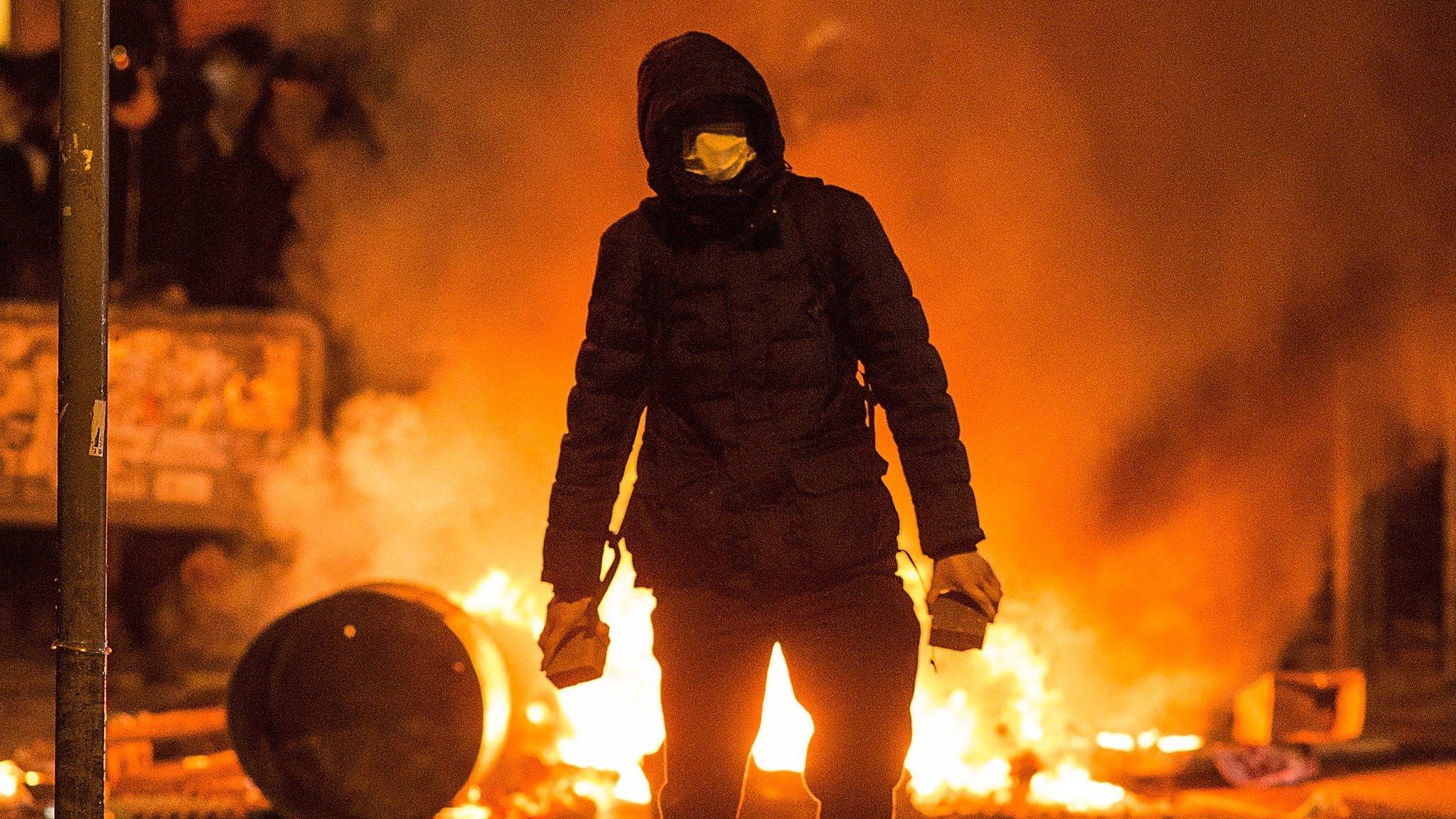
- Published9 February 2016
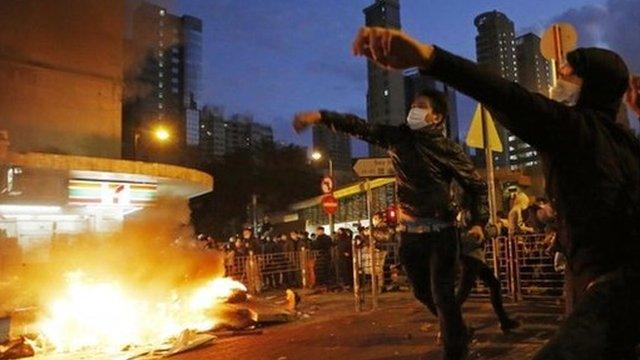
- Published3 December 2014
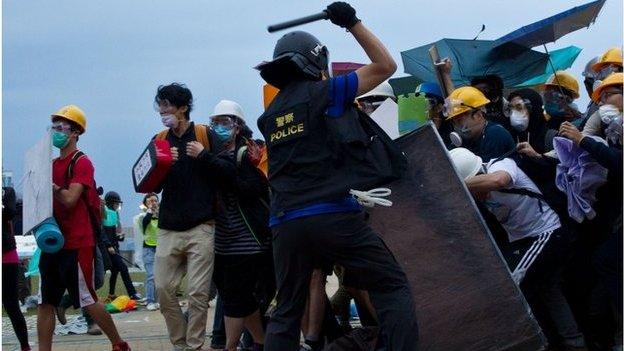
- Published7 January
